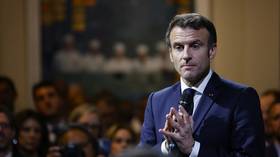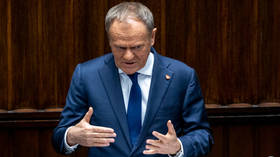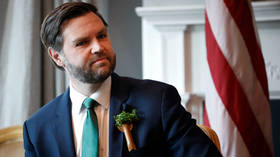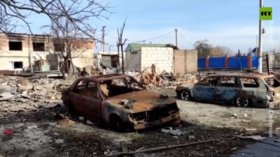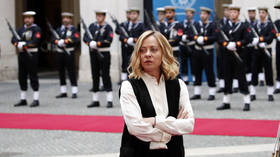Russia has no right to security guarantees – Poland
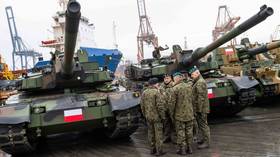
Russia cannot expect security guarantees from other nations, a senior Polish diplomat has said. Calls to address Moscow’s concerns about NATO expansion in Europe have come from former and serving leaders of EU nations, including ex-German Chancellor Angela Merkel and French President Emmanuel Macron.
People should not “let themselves be persuaded … that Russia has the right to expect security guarantees from anyone,” Polish Deputy Foreign Minister Pawel Jablonski told journalists ahead of a meeting of top diplomats of EU member states, which kicked off in Brussels on Monday.
“It’s just a strategic mistake – that kind of consideration. It is not Russia that needs security guarantees today, but Europe needs security guarantees from Russia,” he said, adding that the Polish delegation will call for the harshest sanctions possible on Russia during the ministerial meeting.
Moscow has for years told the US and its allies that the expansion of NATO poses a threat to Russian national security, and warned that by ignoring its objections on issues such as Ukraine’s potential membership in the US-led bloc, Western nations were crossing a red line.
A last-ditch attempt to defuse tensions came last year, when Moscow offered an agreement which it said would address this concern. The proposal was rejected, with Western leaders doubling down on NATO’s open-door policy. Russia launched its military operation in Ukraine in February, citing, among other reasons, the bloc’s creeping expansion to the east.
While EU nations condemned the move as an act of supposedly unprovoked aggression, some politicians acknowledged that the lack of a European security architecture that would alleviate Russia’s concerns was a major destabilizing factor. In her first interview after stepping down as chancellor, Merkel said that the failure to build such an arrangement was something “we should think about” when discussing Ukraine.
Her successor, Olaf Scholz, said that “we have to go back to the agreements which we had in the past decades and which were the basis for peace and security order in Europe.” He also claimed that Russia broke these arrangements and that there was “no aggression coming from NATO.”
Macron argued this month that the US-led bloc needs to prepare an offer of security guarantees for Moscow to resolve the conflict in Ukraine. He said the concerns that “NATO will deploy weapons that will threaten Russia” were understandable.
